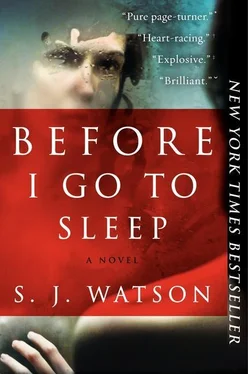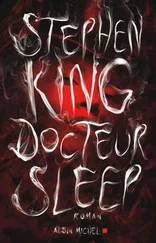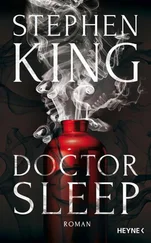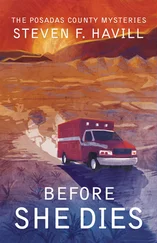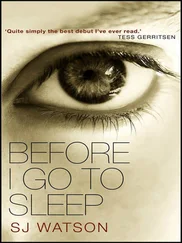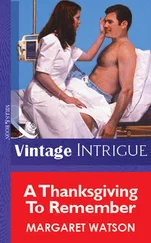We were sitting in a restaurant, one we’d been to before, he said, though I had no idea, of course. Framed photographs of people who I assumed were minor celebrities dotted the walls; an oven gaped at the back, awaiting pizza. I picked at the plate of melon in front of me. I couldn’t remember ordering it.
“I mean,” I continued. “We’ve been married… how long?”
“Let’s see,” he said. “Twenty-two years.” It sounded an impossibly long time. I thought of the vision I’d had as I got ready this afternoon. Flowers in a hotel room. I can only have been waiting for him.
“Are we happy?”
He put down his fork and sipped at the dry white wine he’d ordered. A family arrived and took their seats at the table next to us. Elderly parents, a daughter in her twenties. Ben spoke.
“We’re in love, if that’s what you mean. I certainly love you.”
And there it was; my cue to tell him that I loved him, too. Men always say I love you as a question.
What could I say, though? He is a stranger. Love doesn’t happen in the space of twenty-four hours, no matter how much I might once have liked to believe that it does.
“I know you don’t love me,” he said. I looked at him, shocked for a moment. “Don’t worry. I understand the situation you’re in. We’re in. You don’t remember, but we were in love, once. Totally, utterly. Like in the stories, you know? Romeo and Juliet, all that crap.” He tried to laugh, but instead looked awkward. “I loved you and you loved me. We were happy, Christine. Very happy.”
“Until my accident.”
He flinched at the word. Had I said too much? I’d read my journal but was it today he’d told me about the hit-and-run? I didn’t know but, still, accident would have been a reasonable guess to make for anyone in my situation. I decided not to worry about it.
“Yes,” he said sadly. “Until then. We were happy.”
“And now?”
“Now? I wish things could be different, but I’m not unhappy, Chris. I love you. I wouldn’t want anyone else.”
How about me? I thought. Am I unhappy?
I looked across at the table next to us. The father was holding a pair of glasses to his eyes, squinting at the laminated menu, while his wife arranged their daughter’s hat and removed her scarf. The girl sat without helping, looking at nothing, her mouth slightly open. Her right hand twitched under the table. A thin string of saliva hung from her chin. Her father noticed me watching, and I looked away, back to my husband, too quickly to make it seem as if I hadn’t been staring. They must be used to that—to people looking away, a moment too late.
I sighed. “I wish I could remember what happened.”
“What happened?” he said. “Why?”
I thought of all the other memories that had come to me. They had been brief, transitory. They were gone now. Vanished. But I had written them down; I knew they had existed—still did exist, somewhere. They were just lost.
I felt sure that there must be a key, a memory that would unlock all the others.
“I just think that if I could remember my accident, then maybe I could remember other things, too. Not everything, maybe, but enough. Our wedding, for example, our honeymoon. I can’t even remember that.” I sipped my wine. I had nearly said our son’s name before remembering that Ben did not know I had read about him. “Just to wake up and remember who I am would be something.”
Ben locked his fingers, resting his chin on his balled fist. “The doctors said that wouldn’t happen.”
“But they don’t know, do they? Surely? They could be wrong?”
“I doubt it.”
I put down my glass. He was wrong. He thought all was lost, that my past had vanished completely. Maybe this was the time to tell him about the snatched moments I still had, about Dr. Nash. My journal. Everything.
“But I am remembering things, occasionally,” I said. He looked surprised. “I think things are coming back to me, in flashes.”
He unlaced his hands. “Really? What things?”
“Oh, it depends. Sometimes nothing very much. Just odd feelings, sensations. Visions. A bit like dreams, but they seem too real for me to be making them up.” He said nothing. “They must be memories.”
I waited, expecting him to ask me more, to want me to tell him everything I had seen, as well as how I even knew what memories I had experienced.
But he did not speak. He continued looking at me sadly. I thought of the memories I had written about, the one in which he had offered me wine in the kitchen of our first home. “I had a vision of you,” I said. “Much younger…”
“What was I doing?” he said.
“Not much,” I replied. “Just standing in the kitchen.” I thought of the girl, her mother and father, sitting a few feet away. My voice dropped to a whisper. “Kissing me.”
He smiled then.
“I thought that if I am capable of having one memory, then maybe I am capable of having lots—”
He reached across the table and took my hand. “But the thing is, tomorrow you won’t remember that memory. That’s the problem. You have no foundation on which to build.”
I sighed. What he was saying is true; I can’t keep writing down everything that happens to me for the rest of my life, not if I also have to read it every day.
I looked across at the family next to us. The girl spooned minestrone clumsily into her mouth, soaking the cloth bib that her mother had tucked around her neck. I could see their lives, broken, trapped by the role of caregivers, a role they had expected to be free of years before.
We are the same, I thought. I need to be spoon-fed, too. And, I realized, rather like them and their child, Ben loves me in a way that can never be reciprocated.
And yet, maybe, we were different. Maybe we still had hope.
“Do you want me to get better?” I said.
He looked surprised. “Christine,” he said. “Please…”
“Maybe if there was someone I could see? A doctor?”
“We’ve tried before—”
“But maybe it’s worth trying again? Things are improving all the time. Maybe there’s a new treatment?”
He squeezed my hand. “Christine, there isn’t. Believe me. We’ve tried everything.”
“What?” I said. “What have we tried?”
“Chris, please. Don’t—”
“What have we tried?” I said. “What?”
“Everything,” he said. “Everything. You don’t know what it was like.” He looked uncomfortable. His eyes darted left and right as if he expected a blow and didn’t know from what direction it might come. I could have let the question go then, but I didn’t.
“What, Ben? I need to know. What was it like?”
He said nothing.
“Tell me!”
He lifted his head and swallowed hard. He looked terrified, his face red, his eyes wide. “You were in a coma,” he said. “Everyone thought you were going to die. But not me. I knew you were strong, that you’d make it through. I knew you’d get better. And then, one day, the hospital called me and said you’d woken up. They thought it was a miracle, but I knew it wasn’t. It was you, my Chris, coming back to me. You were dazed. Confused. You didn’t know where you were, and couldn’t remember anything about the accident, but you recognized me, and your mother, though you didn’t really know who we were. They said not to worry, that memory loss was normal after such severe injuries, that it would pass. But then—” He shrugged, looked down to the napkin he held in his hands. For a moment, I thought he wasn’t going to continue.
“Then what?”
“Well, you seemed to get worse. I went in one day and you had no idea who I was. You presumed I was a doctor. And then you forgot who you were, too. You couldn’t remember your name, what year you were born. Anything. They realized that you had stopped forming new memories, too. They did tests, scans. Everything. But it was no good. They said your accident had damaged your memory. That it would be permanent. That there was no cure, nothing they could do.”
Читать дальше
